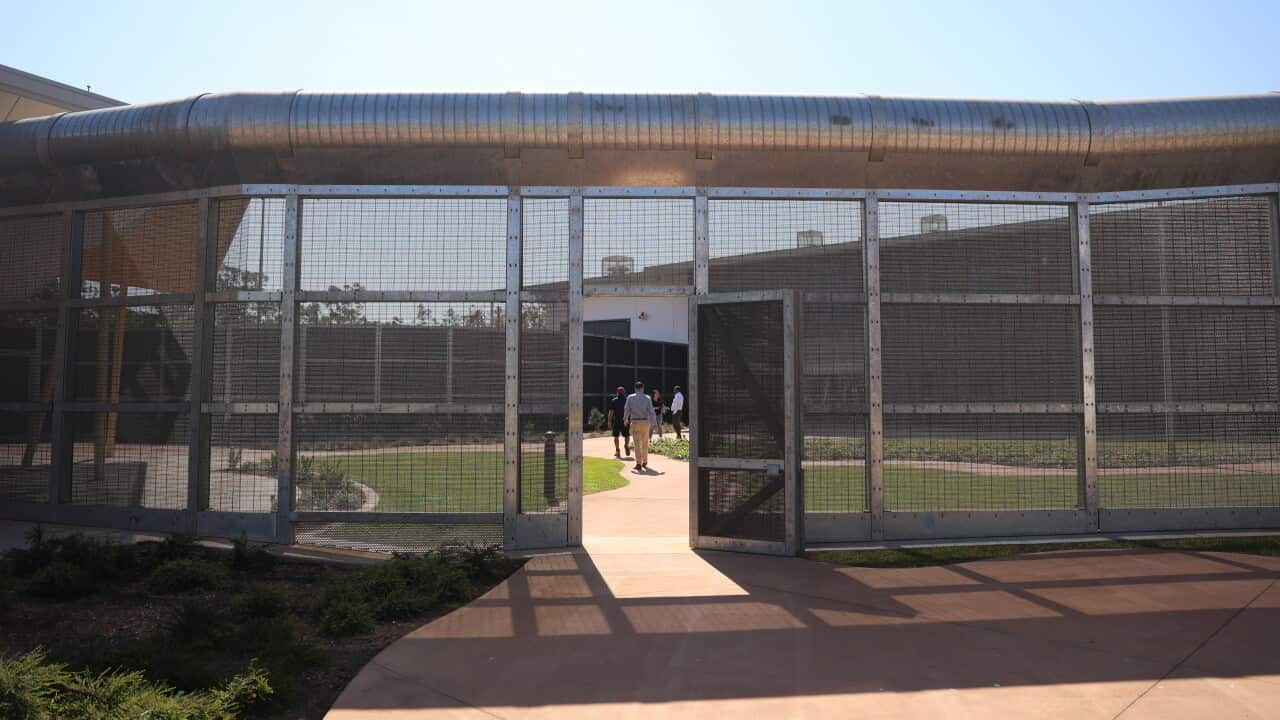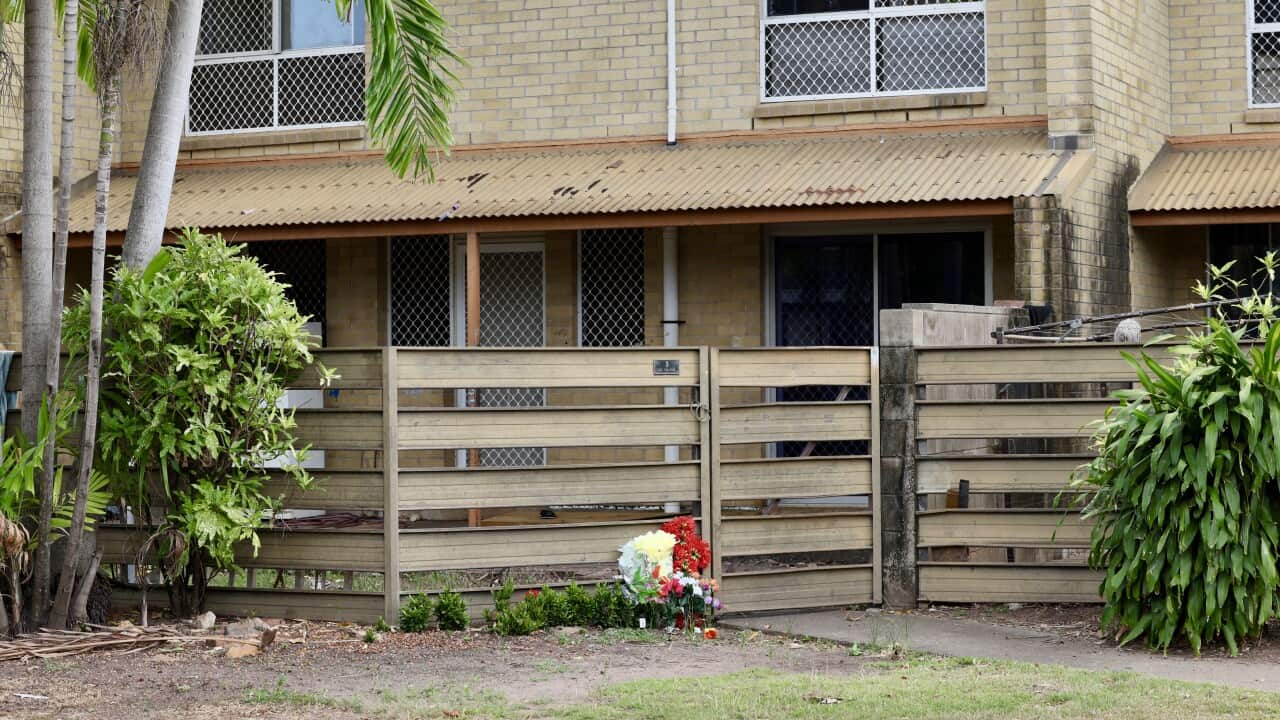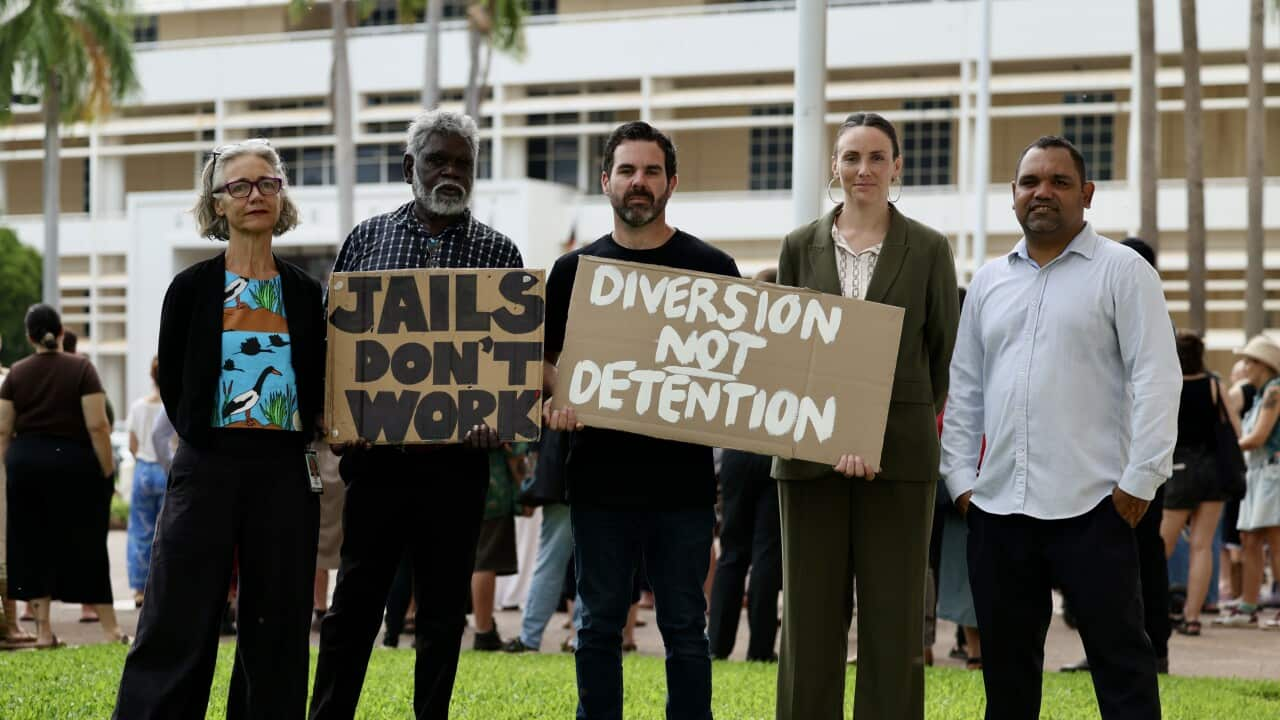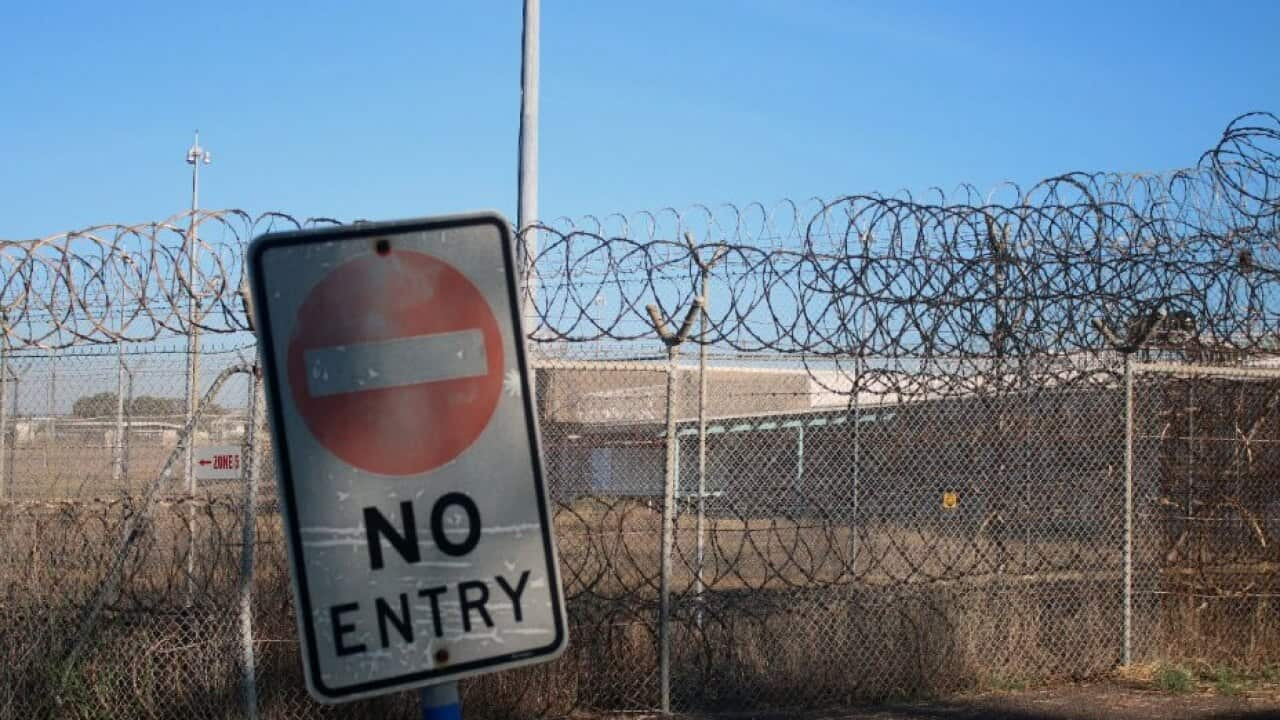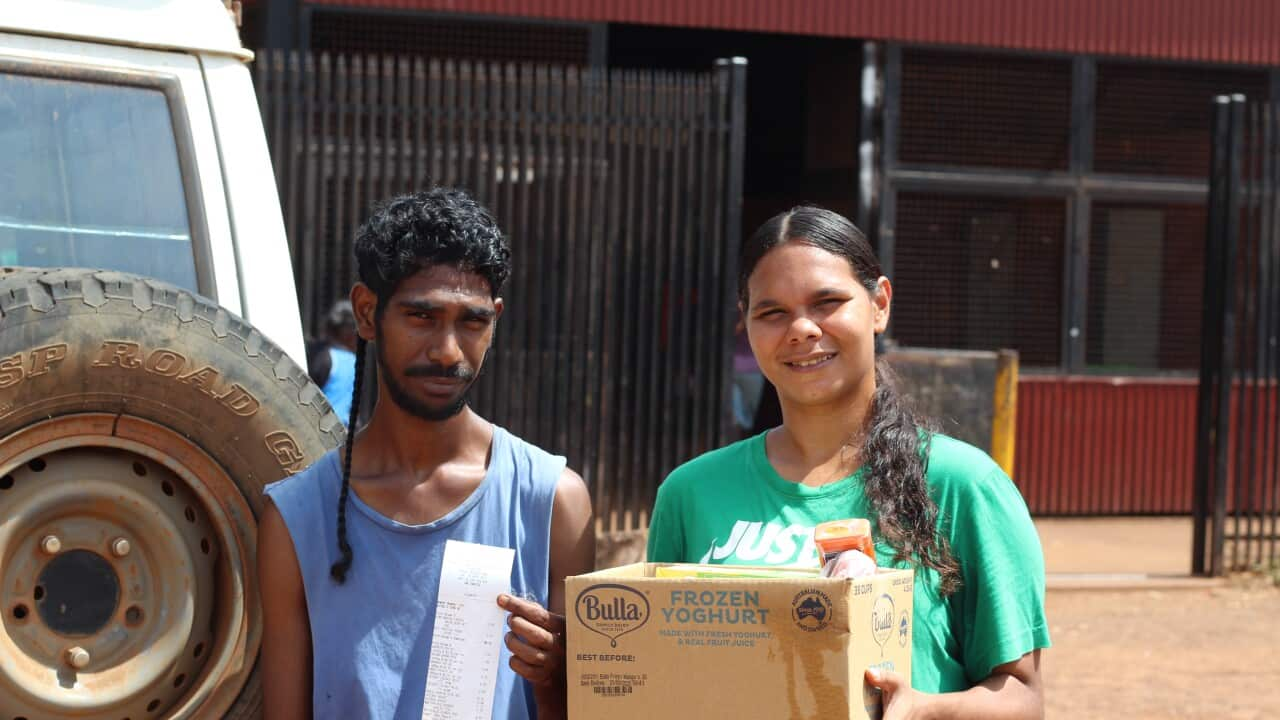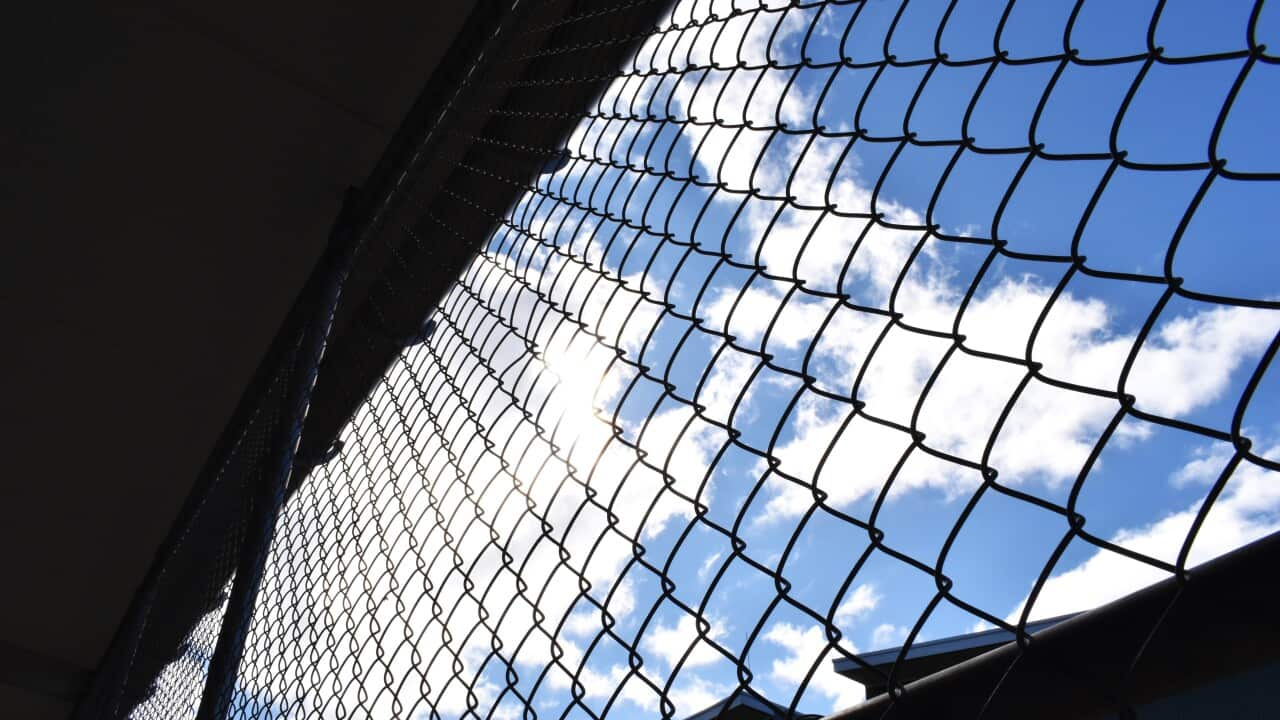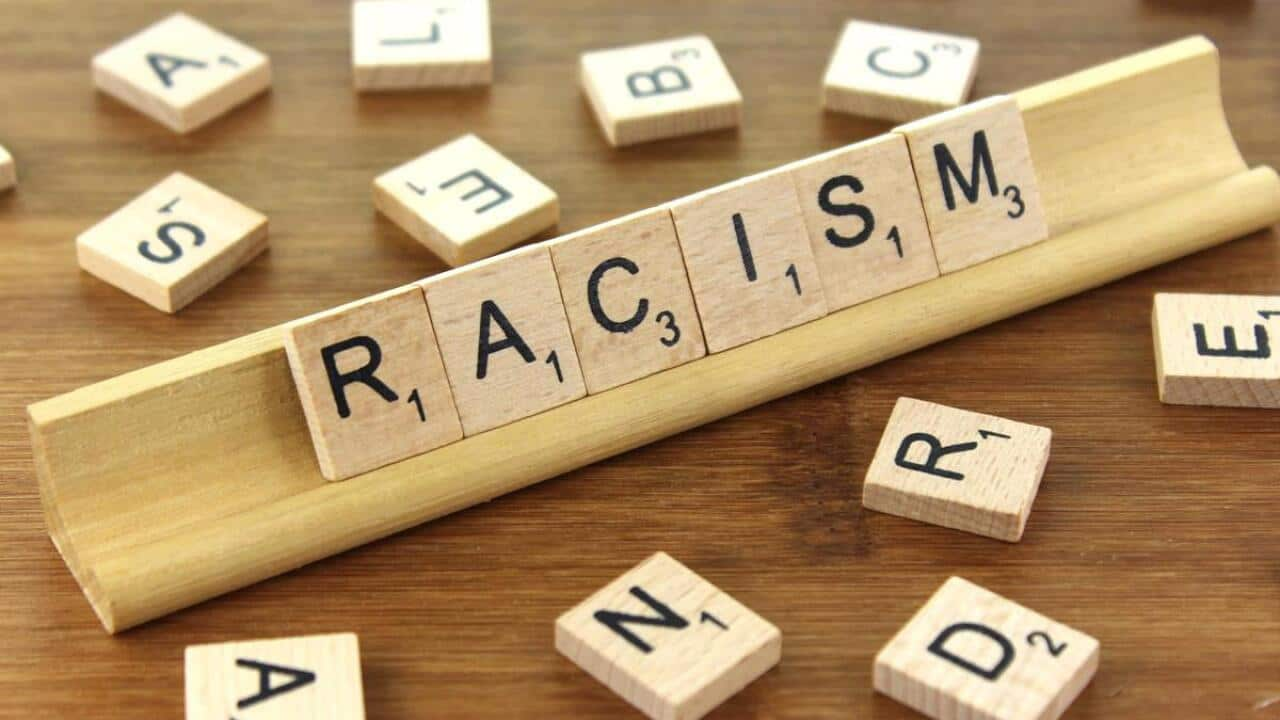Larrakia Elder Dr Richard Fejo is furious at the new Northern Territory government's approach to children.
This week Dr Fejo resigned as chair of the Darwin Waterfront tourist precinct in protest at the Country Liberal Party Government's laws that will enable children as young as 10 to be arrested.
"I flatly refuse to work under the regime of a government that is putting in draconian laws and the impact it will have on people, and my people, First Nations people," he told NITV.
"And when the government lies and says that this is for all people, all you need to do is look at the stats and the facts."
The latest data from showed 99 per cent of children in detention were Aboriginal.
In October the NT Office of the (OCC) released a report in response to the already increasing numbers of kids in detention.
That report found that the young children in detention were well known to multiple agencies and systems but their needs were not adequately responded to earlier, prior to their incarceration.
All of the children considered by the OCC report had been involved with the child protection system; all but one child had exposure to family violence and the majority had mental health needs and/or cognitive disabilities.
"Alternate measures are not taken to support the families, as preventative measures, to actually support the children," Dr Fejo said.
"They decline to talk about this, and they're ignoring it, because their solution is to lock up the Blaks and I'm bloody sick of it."
The newly elected CLP government, under Chief Minister Lia Finocchiaro, pushed changes to bail and weapon laws through parliament on October 16.
The changes extend police powers to search and seize weapons from anyone over the age of 10 and give all violent offenders a presumption against bail.
The new laws added to an already harsh environment after the previous Labor government in May 2021, through the Youth Justice Legislation Amendment Bill, removed the presumption in favour of bail for a young person charged with certain offences (including non-violent offences) and removed judicial discretion for breaches of bail in certain circumstances.
The 2021 changes saw a massive increase in kids in detention, mainly on remand (where they are held in custody after being arrested but yet to have faced trial).
The number of distinct children detained on remand in February 2023 was almost triple the May 2020 numbers.
"These reforms were a concerning shift away from evidence-based best practice and ignored research that informed recommendations of the NT Royal Commission (into the protection and detention of children in 2017)," the OCC report found.
Dr Fejo says the new laws will even more Aboriginal kids locked up in prison.
"Some of them because they don't have the family support at home," he said.
"The government's job is to take care of the community and build their family support so that our youth can have a normal childhood, not that of poverty and desperation and despair and sickness, which quite often we still experience as the most disadvantaged people in Australia.
"White Australia forgets that everything that comes from Australia was once ours, and when they dispossessed us they dismissed us from our economics, from our lifestyle, they dispossessed us from our culture and our language."

Northern Territory Children's Commissioner Shahleena Musk. Source: AAP / (A)MANDA PARKINSON/AAPIMAGE
Her report found the rate of young people experiencing homelessness in the NT is 12 times the Australian average and that almost half (45 per cent) of all Aboriginal households live below the poverty line.
"Children who come into contact with the youth justice system, and particularly younger children under the age of 14 years, are among some of the most vulnerable children in our community," the OCC report said.
"The vulnerabilities these children experience are often co-occurring, compounding in their effects, and beyond the child’s control.
"Many who encounter the justice system this young present with unmet needs related to trauma, mental health and living with a disability.
"They have experienced chronic adversity including homelessness, exposure to domestic and family violence, parental incarceration and substance use.
Often these children are talked about and dealt with as if they are adults making ‘bad life choices’, rather than with the concern and support they should receive to overcome significant childhood adversity.
National and international research establishes that locking up children does not make communities safer.
"Instead, it impacts negatively on the lives of some of the most disadvantaged children and increases the likelihood of their lifelong entrenchment in the criminal justice system," the OCC report says.
Data from the (AIHW) confirms that detention is ineffective in preventing future offending, particularly for children sentenced to detention as their first supervised sentence (compared to a community-based order).
It found that 97 per cent of children aged 10-12 who were sentenced to detention as their first supervised sentence, returned to some type of sentenced supervision before they turned 18.
"If a tough on crime approach worked, the NT would be the safest place in Australia," Ms Musk said.
"Yet, as the data demonstrates year on year, punitive youth justice responses only reinforce the very behaviour that society seeks to change and increases the chance of further offending."
Adults in prison on the rise too
The NT already locks up the highest proportion of adults in the country, with the rate more than triple the next highest jurisdiction, Western Australia, according to the .
More than 80 per cent of adults in jail in the NT are Indigenous.
A 2022 report by the Justice Reform Initiative found prisoner numbers in the NT had grown by more than 30 per cent over a decade, with the number of Aboriginal and Torres Strait Islander adults in prison rising 34.4 per cent.
The NT Department of Corrections on Saturday implemented 'emergency measures' in response to a rapid and continuing surge in prisoner numbers across correctional facilities and watch houses.
As part of Correction Commissioner Matthew Varley's plans to reduce overcrowding, children at the notorious Don Dale were being moved into a new purpose-built facility next to the adult corrections centre in Darwin.
The move was to free up 50 beds for low-security men, Mr Varley said, but would take a few weeks to upgrade infrastructure.
Under his directions, 10 extra prisoners will be placed into the Darwin watch house, 20 more inmates sent to Darwin prison and 20 others added to the Alice Springs Reintegration Facility.
All female prisoners at Alice Springs prison will be temporarily transferred to sector 4 of Darwin prison until a new women's facility in Alice Springs is operational.
Another 40 male inmates are to be housed at a "hotel block" within Alice Springs prison, and pressure relieved "accordingly" on Katherine, Palmerston and Alice Springs watch houses.
"The cards that were dealt every day by the courts, police activity and community safety and crime issues are the cards we're dealt ... I'm just focused on responding to that," Mr Varley said.
More than 100 extra people have entered the prison system since the CLP was elected in August.
Three territory's three specialist women legal services said they had grave concerns for women transferred from Alice Springs to Darwin.
Katherine Women's Information and Legal Services chief executive Siobhan Mackay said more than 40 women had been moved in the past fortnight.
Transferring women 1500 kilometres has severe consequences, the Central Australian, Katherine and Top End women's legal services said in a joint statement.
They said women were bearing the brunt of the "overburdened justice system" and moving them was a breach of international human rights, severing connections to their children, culture, community and country.
Dr Fejo says locking up Aboriginal people is in the DNA of the CLP.
"I'm going to call it as it is, I'm going to say it's racism," he said.
"I'm going to say it's discrimination because it's directed at one particular group of people ...
"Look how many Aboriginal people have been arrested compared to non-Aboriginal people, ask the police, ask the Correctional Services, ask the courthouses, how many Aboriginal people will actually go through those processes when compared to non-Aboriginal people?"
And he issued a call for solidarity.
"I'm making a stand, and I'll invite any people to come, Aboriginal and allies, and put their foot down and say, enough's enough," Dr Fejo said.
"We're going to draw a line in the sand."
